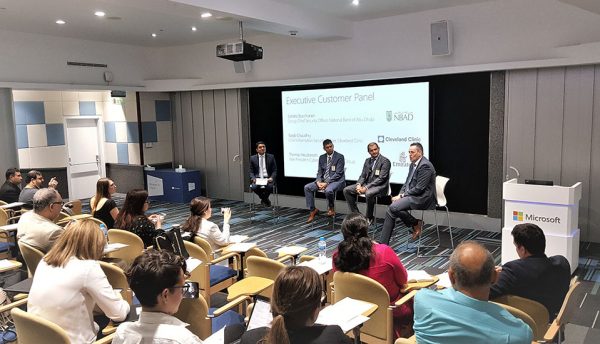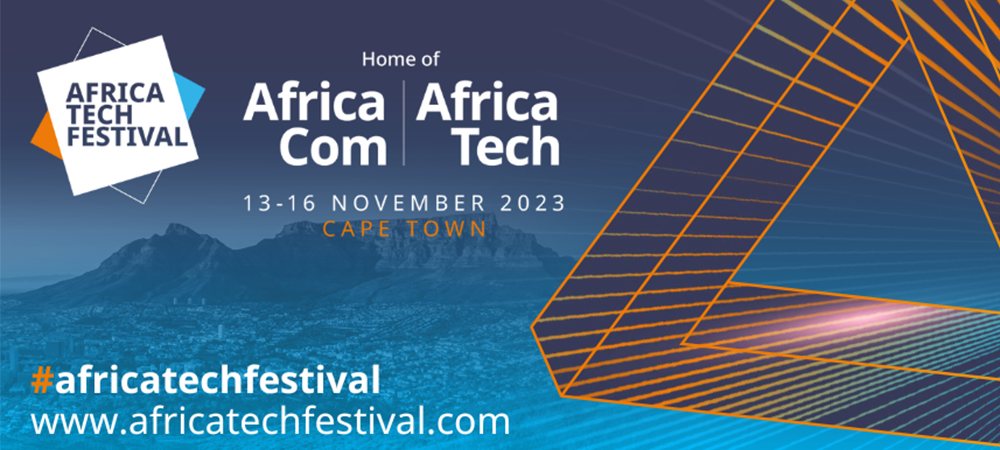Microsoft recently brought together industry experts and prominent technology decision makers at a media event in Dubai to demonstrate how Gulf-based organisations can use cloud services to protect themselves against cyber threats.
The GCC region has, over the past decade, become a hot zone for cyberattacks, due to the acceleration of Internet and mobile penetration and relatively high average net worth among its citizens. In 2017, the popularity of the Internet of Things (IoT) is expected to increase the number of endpoints available to cyber criminals and hacktivists, leading to a marked surge in breaches.
As the region’s enterprises and public bodies continue to adopt technologies like cloud computing to digitally transform their businesses, Microsoft believes service providers and their customers will need to address the demand for fresh policies and procedures that consider the evolving threat landscape.
Cyberattacks are responsible for widespread disruption and losses in productivity and growth. Global estimates vary, but figures are routinely reported in the range of hundreds of billions of dollars. One estimate predicts the global cybersecurity market to be worth more than $120 billion in 2017 – a 35-fold increase over the past 13 years – and to reach more than $1 trillion cumulatively over the next five years.
“The threat landscape evolves with the technology ecosystem and so cybersecurity is a top priority for Microsoft,” said Mohammed Arif, Windows & Devices Business Group Lead, Microsoft Gulf. “As targets for attacks grow, we expect the number of breach attempts to increase. The Microsoft cloud incorporates security at every level and in every scenario. We encrypt data to the highest standard, whether at rest or in transit to or from our data centres.”
The Dubai event gathered Microsoft experts who discussed the company’s security portfolio and the emerging threats and counter-threat solutions in the region. Additionally, representatives from the National Bank of Abu Dhabi (NBAD), Cleveland Clinic Abu Dhabi and Emirates Airlines participated in a panel discussion about the challenges Gulf businesses face as they try to address the shifts in the threat landscape. Past high-profile attacks across the GCC have propelled cybersecurity from the IT office to the boardroom, and it now tops the C-level agenda. The participants explained how they had adopted Microsoft solutions to help protect their digital assets and employees.
In the past year, Microsoft has taken steps to further strengthen its security platform with the introduction of services such as Microsoft Cloud App Security, Windows Defender Advanced Threat Protection (WDATP) and Office 365 Advanced Security Management. Intelligence is at the heart of services such as Azure Security Centre, Microsoft Advanced Threat Analytics and WDATP. Enterprise-grade security in Windows 10 and the Microsoft Surface range is enabling enterprises to take ownership of their security infrastructure. Surface Enterprise Management Mode (SEMM) allows users to modify privileges, lock out suspicious sessions, and control hardware configuration and operating system behaviour.
With the Creators Update, Windows 10 continues to broaden and deepen its security features. The new Windows Defender Security Center combines security and health options in one place, making easier for users to control Windows 10 device security and health options. For enterprise customers, the Creators Update will continue to bring new tools and capabilities that help simplify IT – making it easier to better deploy, manage and support Windows 10 devices – and to help stamp out security threats.
Microsoft’s SQL Server continues to lead the market, with its advanced data security features and new capabilities for Azure Security Centre (ASC) and Operations Management Suite (OMS). The platform helps organisations protect data, and detects and responds to sophisticated threats across cloud and datacentre resources. SQL works together with OMS and ASC to act on real-time intelligence from Microsoft’s network of global threat-monitoring and insights, giving customers greater visibility into their own security configuration, as well as insights into potential redundancy in their data.
Office 365 Secure Score is a new security analytics tool that helps IT professionals assess the strength of their current Office 365 security configuration. Its threat intelligence, available later this year, provides near real-time insights into the global threat landscape to help customers stay ahead of cyber threats.
Many companies in the Middle East are ill-equipped to defend against major cyber attacks, according to research by Symantec and Deloitte. Their report suggests that more than two thirds of organisations in the region lack the internal capabilities to protect themselves against sophisticated intrusion methods. Additionally, 70 per cent of regional IT decision makers admit having less than full confidence in their company’s cybersecurity policies.
But Middle Eastern companies are increasingly rising to the challenges posed by cyber attacks, expanding their IT departments and promoting greater awareness of threats. Current estimates value the Middle East cybersecurity sector at $25 billion over the next 10 years and Microsoft is responding by building a robust ecosystem of security partners across the region.
“As governments and enterprises around the world continue to recognise the cost and productivity benefits of digital transformation, a holistic, managed approach to security has become more critical than ever before,” Added Arif. “This is why we are collaborating with partners, customers and governments to combat the region’s threat landscape. We want to give businesses and governments peace of mind, so they can focus on doing what they do best – innovating.”
Click below to share this article






